TEACHED VOLUME I
1. THE PATH TO PRISON
The United States now bears the ominous title of being the world's most prolific jailer: with only 5% of the population, we represent 25% of the incarcerated. The vast majority of our prisoners are functionally illiterate—even if they went to school—and an inordinate number of them are people of color. In The Path to Prison, a former gang-member and felon from South Central Los Angeles shares his own path, helping us understand how so many capable and intelligent young men—especially African-American males like him—end up uneducated and behind bars in the 'home of the free.' (8 min.) Featuring: Jerone Shell
2. THE BLAME GAME
The discourse around education reform—especially on issues involving teachers—lacks nuance, thoughtfulness and, often, commonsense. Political rhetoric is distracting from efforts to improve teacher quality, especially in schools serving urban, minority children. It has become virtually impossible to fire a teacher in America, and when incompetent, absent or even abusive teachers can’t be fired, they are shuffled to the schools where parents have the least power to do something about it. Meanwhile, qualified candidates go through the steps to become teachers only to be knocked around and sometimes out of the system by the same rules. In this short film, teachers themselves ask whether the system is serving students’ needs…not to mention their own. (17 min.)
Featuring: Howard Fuller, Pearl Arredondo, Virginia Walden-Ford, Steve Hill, Michelle Rhee, Amber Pierce, Batia Oren, Dan Gerstein, Lisa Raymond, Barrie Weiss
3. UNCHARTERED TERRITORY
Charter schools have been around for over twenty years, yet many Americans are still unclear about what exactly these schools are and everyone wants to know why some are so great and others…not so much. Unchartered Territory looks at the advent of charter schools offering urban, minority children new school options while also providing new staffing models centered on results and accountability. Interviewing some of the most successful 'pioneers' of this still-developing frontier, this short film provides an insider’s look at both the opportunities and obstacles presented by charter school reform in America. (15 min.)
Featuring: Kevin Chavous, Deborah Kenny, Irasema Salcido, Steve Barr, Jason Epting
TEACHED VOLUME II
In production. Planned for release in early 2015
1. CODE OAKLAND
This short film examines the evolution of Oakland through the eyes of social entrepreneurs who are determined that youth of color not be left on the sidelines as Silicon Valley spreads across the Bay and into the home of the second largest black community in California. Kalimah Priforce, whose first success as a social justice rebel was a hunger strike at the age of eight, and Kimberly Bryant, a successful electrical engineer turned founder of Black Girls Code, are organizing large-scale hackathons to prepare youth to redesign the future through the power of digital coding. Joined on the national stage by #YesWeCode founder and CNN Commentator Van Jones, their work represents the cusp of a growing movement to change both the face and use of technology in America. But is Silicon Valley ready to be hacked? (22 min.)
Featuring: Kalimah Priforce, Kimberly Bryant, Van Jones, Yes We Code, Qeyno Labs & Black Girls Code, Isaiah Thomas, others (tbd)
2. OFFSIDES
In this short film, we follow Tyzjae (Tie-zhay) Monroe from sixth grade to his junior year in high school as he and his mother struggle to find him a school that acknowledges—let alone nurtures—his obvious intellect. As a black male growing up in urban America, Tyzjae has already encountered his share of obstacles and set-backs in his quest to follow a direct path to college. When it is discovered in junior high that he is an exceptionally good quarterback, suddenly his value to area schools increases exponentially and the path seems all but certain. So what happens when a serious injury at the end of ninth grade keeps him off the field for a year? (Coming soon)
Featuring: Tyzjae Monroe, Tequaila Monroe, Curtis Monroe, Catrina Brown, Marco Clark, Alisha Roberts.
3. THINK OF CALVIN
On a Friday night after a long week at work, Calvin Davis joined his family in Southwest Washington, DC for an informal gathering. Still wearing scrubs from his job at Children’s National Medical Center, Calvin caught up with old friends while his two boys rode their bikes around the block. When police followed his fifteen year-old home, pulling on gloves as they approached the teenager, Calvin intervened to ask “Why? What did he do?” How these questions escalated into a night in jail for a father with no prior record will make you “Think of Calvin” next time you question racial profiling or how America has become the world’s most prolific jailer. (Coming soon)
Featuring: Calvin Davis, Carlet Harris, Montae Harris, C.J. Davis
